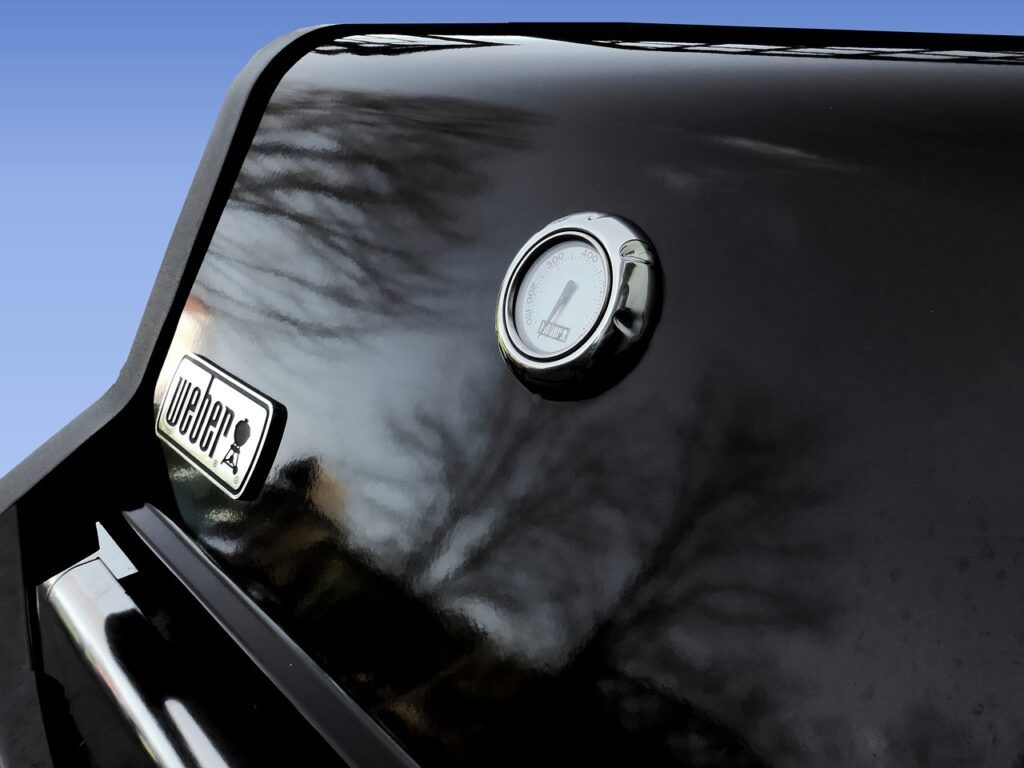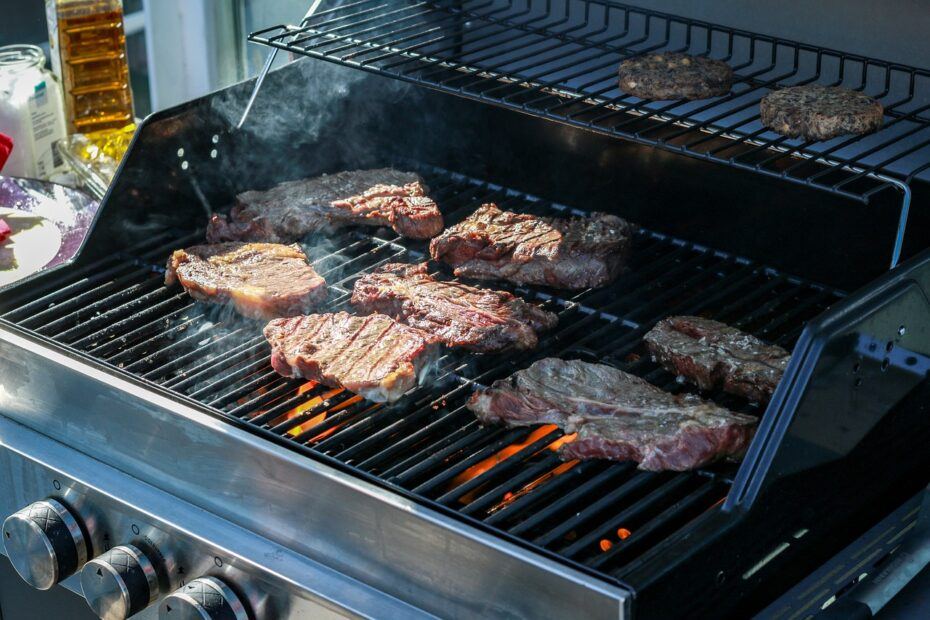The thrill of hosting a backyard barbecue hinges on a simple, yet crucial choice: picking the perfect grill.
It’s more than just a matter of taste – it’s about finding a grill that suits your lifestyle, enhances your cooking experience, and consistently delivers mouth-watering results.
I mean imagine tossing fresh veggies on the grill on a balmy evening, the sizzling sounds promising a meal that’s both nutritious and infused with that unmistakable grilled flavor…
Perfect.
Anyway, with a variety of grills in the market, such as gas, charcoal, electric, and pellet, the decision might seem overwhelming at first.
But I believe it’s just a matter of aligning your choice with the right combination of practicality, personal preference, and performance.
In this article, I’ll help you get to the heart of what’s important when selecting a grill, touching on key considerations like the types of food you’ll be grilling, the frequency of use, and of course, the amount of space you have at your disposal.
As you read on, consider your cooking habits, the physical space you have for a grill, and the level of convenience you need.
Next, I’ll guide you through a closer look at how to weigh these factors to ensure they point you toward the grill that will become the cornerstone of many memorable meals to come.
Considering Your Grilling Needs and Space
Before you pull out your wallet, take a moment to think about how often you’ll grill and what you plan to cook.
Will you be flipping burgers every weekend or smoking brisket for special occasions?
The frequency and variety of your use will guide you to the appropriate grill size and features.
But your physical space is just as important.
Measure your patio or deck to ensure the grill fits comfortably and remember to allow for safety clearances and convenient access.
If you have limited outdoor space, consider compact options or portable grills that still offer excellent performance.
Now, you might think bigger is always better, but that’s not the case.
A larger grill may provide more cooking surface, but it also takes longer to heat up and uses more fuel.
It’s important to find the right balance between size and function to avoid unnecessary expenses and hassles.
Lastly, think about how often you’ll need to move your grill.
If you forecast frequent movement, look for models with sturdy wheels and good stability. Consider the weight and whether you’ll need to store it during off-season months as well.
The ideal grill should make your life easier, not become a cumbersome chore when it’s time to pack it away.
Examining Grill Features and Build Quality
Diving into the world of grills means navigating a sea of features and build quality options.
What seems like just bells and whistles could significantly affect how your grill performs and lasts over time.
So it’s essential to know which features will enhance your grilling experience and to understand how the build quality can affect the grill’s longevity.
The features you’ll find in a grill vary widely.
For starters, think temperature control, which is crucial for cooking precision.
Gas grills often have knobs for quick adjustments, while charcoal grills use vents to regulate airflow and therefore the heat.
Pellet grills usually provide the convenience of electronic temperature control, which may be nice for the folks that prefer pin-point accuracy.
Whichever you prefer, consider how your choice aligns with the level of control you desire.
Materials matter too.
Stainless steel grills often stand up better to the elements and are easier to clean, making them a wise choice for durability.
But don’t overlook coated aluminum, which can also offer robust performance and may come with a softer hit to your wallet.
The inclusion of safety features is non-negotiable.
From sturdy construction that prevents tipping to flame-stabilizing designs that reduce flare-ups, these aspects are worth every penny for peace of mind.
Likewise, easy maintenance not only saves time but can also prolong your grill’s life.
Think beyond the basics, as many grills come with extras that can make cooking easier and more enjoyable.
Side burners, rotisseries, and even smart technology integration, like Bluetooth thermometers, can elevate your grilling game.
As you examine these features, consider how they fit with your cooking style and whether they justify the additional expense.

Budget and Long-Term Costs
Trust me, I understand fully that a grill’s an investment.
Just as you wouldn’t buy a car without considering its total cost of ownership, you shouldn’t choose a grill without thinking about the long-term expenses.
Finding a balance between the initial cost and ongoing operational expenses is key for a smart purchase.
Let’s talk about setting a realistic budget.
Start by asking how much you’re willing to spend and what features are non-negotiable for you. Your budget should reflect the quality you expect and the frequency with which you’ll use the grill.
While it’s tempting to go for the cheapest option, remember that durability and manufacturer warranties sometimes save money in the long run.
A well-built grill from a reputable brand may cost more upfront, but it can be a safer bet over years of use.
Consider also the operational costs.
If you choose a gas grill, for example, you’ll need to think about the price of propane or natural gas. Charcoal grill enthusiasts should factor in the cost of charcoal briquettes.
Even electric grills can add a noticeable amount to your electricity bills over time.
Don’t forget about maintenance either.
Protective covers, cleaning tools, and replacement parts can add to your overall expenditure. Be proactive in understanding these costs before you buy to avoid surprises.
Finally, always look for reliable reviews and price comparisons.
Seek out opinions from actual users and experts alike to gauge a grill’s performance and reliability.
Remember, the best value comes from a grill that meets your needs, lasts for years, and doesn’t break the bank with hidden costs.
Final Thoughts
In conclusion, the right grill should offer a harmonious blend of initial affordability and reasonable long-term expenses.
Keep in mind that your decision will have enduring effects and a grill that matches your needs can transform an ordinary outdoor space into a culinary haven.
It’s clear that making the right choice isn’t just about the immediate gratification of a well-cooked meal – it’s about investing in countless moments of joy and satisfaction that come from grilling.
So do your homework, factor in all potential costs, and you’ll be able to make an informed decision that allows you to enjoy countless BBQs without financial regret.
Happy grilling!
